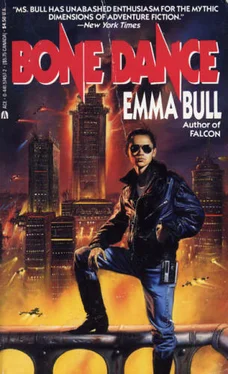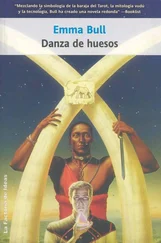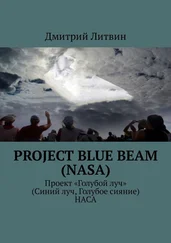“What’re you going to do with Sparrow?”
“I am going to take Sparrow home, and you will damn well have to take my word for it. Get inside.”
“What home?”
I was, after all, a confirmed bird of passage, but I hadn’t thought that Sherrea knew that. Myra said, “If I wanted you to know, I’d invite you along.”
Sher was glowering from under her hair, a pixie with a bad attitude. “I’d rather she didn’t shoot you,” I croaked.
“You don’t belong to them,” Sherrea said savagely. “You never did. And you don’t now.” Then she turned and pulled Theo inside.
Myra walked over to me and hauled me up by one arm. “Your standards of personal grooming never cease to impress me,” she said, giving my mud the once-over. “Peppermint, stay there until I come back for you, and if I find you’ve twitched a finger, they’ll mistake your corpse for a screen door.”
He still had the silvertones on; their blankness gave his face extra malevolence. He said, “When I kill you, I’m gonna make you remember tonight.”
She looked down at him, the rifle pointed at his jaw. “Probably,” she said, her words slowed by the weight of some personal meaning. “I have a damnably long memory.” She took my elbow and drew me stumbling toward the parking lot.
The dust was rinsed away, but the thing parked at the pavement’s edge was recognizably the tri-wheeler from two days before. We stopped next to it, and Myra dug in her raincoat and pulled out a little chromed key. She poked it into my jeans pocket. “The cuffs,” she explained. “I’d ditch them now, but you’re so much more manageable this way. Get in.”
She’d popped the weather shell open, and I stood staring, a sickly colored light dawning in my battered head. In the driver’s seat of the tri-wheeler was the black-haired woman who owned it, she of the many names. She sat slumped, her eyes half-closed, her mouth slack, her hands dead on her thighs. Inert. Gone.
“Oh. Oh, hell,” I whispered. I glanced at Myra, back again to the black-haired driver.
Myra sighed. “Never mind; I’ll do it.” Before I could struggle, she grabbed the back of my shirt and the waistband of my jeans and swung me in behind that uninhabited body. Then she turned the driver’s limp hands over. Twined in the fingers of the left one I saw a strip of braided leather thong and black beads: my hair tie. Myra laid the rifle across the black-haired woman’s palms. I must have made a little noise, because Myra turned her flat gray gaze on me. “Sorry,” she said. “When you booked your seat, you should have specified ‘no shooting.’“
Myra walked away from the tri-wheeler, about a dozen feet. Then she turned around. Her face was blank.
The hands that had been limp closed around the rifle and raised it, pointing it at Myra. And above the rifle, the black-haired woman’s face was alive with the pleased expression that Myra’s features had worn moments before. Myra looked like someone who had gone to sleep in the basement and woken up on the roof, which I suppose wasn’t far from true.
“Myra Kincaid, you make me wish there were disinfectant for the mind,” said the black-haired woman. “Are you confused? Of course you are. The short version is that I’m not on your side, I’ll shoot you if you take one more of those steps, and I’m stealing your friend here. For the long version, ask your brother. He’s around back.”
I saw Myra take a breath; then, as if that had broken a spell, her face contorted, and she screamed, “Who the hell are you?”
“I’m the thing you’re a pale shadow of,” said the black-haired woman, and started the tri-wheeler. “Come see me again when your permanent fangs grow in.”
Myra took another step, and I steeled myself against the sound of the rifle. But the weather shell slammed down instead, and I was thrown against its scarred window as the trike launched and U-turned.
The driver said loudly, “If I’m lucky, her brother will kill her first, thinking she’s still me, and ask questions later. But God knows, I haven’t been that lucky yet.”
“I know what you are.” The words popped out of my mouth as soon as I opened it. Maybe they’d been sitting there too long.
“Do you?” she said, all polite inquiry. “How nice. I was afraid, for a moment, that you might disappoint me.”
Once there had been people who stole the prerogatives of the loa, who forced their way into other people’s minds and possessed them. They were a fantasy from silly novels and B-movies come alive. They were harnessed to the military—but who harnesses gods? In the end, they betrayed their side, betrayed everyone: they pushed the Button. Over half a century ago.
“You’re a Horseman,” I said.
The three wheels rattled and slammed over a street of potholes and patches, a typical street in this rough, hollow new world. The one she had made.
She stopped at the bridge to the Deeps and turned, and smiled a smile that made my skin creep. “Aren’t we all supposed to be dead?”
I nodded. Somewhere in the back of my head, where I couldn’t get to them, I felt facts begin to fall into line.
“Good. It would have been so confusing, otherwise. Now, shall I return the favor?”
“I don’t—what?”
“Well, you see, I know what you are.”
We stared at each other for perhaps ten seconds, which is a very long time. For the rest of the trip to the Night Fair, I tried not to move. It hadn’t worked with La Maitresse and Mr. Lyle; but this time I was hoping for better results than simply not being noticed. This time I meant to disappear entirely.
The gates of the Night Fair were open, the lights on, the party rolling forward in its habitual way. She stopped at the first opening in the fence and said, “Give me directions.”
I stared at her, all my possible responses shooting like scan lines across my mind: fill the screen, overwrite, overwrite.
She laughed. “As I’ve said once tonight, I have no preference. But I thought you’d rather I asked, since we’ll get there whether you help or not.”
I wanted to ask which of the major arcana she was. There was a gas lamp on one of the gateposts; it sent light skidding over the side of her face, across her nose, but it missed the eye socket. There was a little scar, barely more than an indentation, near the corner of her mouth. It might have been from a childhood injury, long forgotten. Oh, little laughing gods, of course forgotten—her body couldn’t have been more than thirty. It was an injury from someone else’s childhood.
“Keep going,” I said in an ugly, clogged voice. “There’s a closer gate.”
She took the handcuffs off as soon as we arrived. My wrists hurt, but I didn’t rub them. She kept the automatic rifle with her; I couldn’t imagine what she meant to use it on, since she didn’t need it for me.
There are no similes for the way I felt, leading her into the building, into the elevator, standing across from her in that little box as it lurched quietly toward the top of the building. Maybe it says enough that I didn’t try to hide my wire-crossing from her.
What had it been like for Myra Kincaid? Had she known that her body was being stolen? Had she struggled? Or had she missed it all, and suddenly found herself awake, face-to-face with the comfortless smile of the loa ? Make the elevator work, Sparrow; or she’ll mount you, and sink her spurs into you, and have every scrap of knowledge out of you, of that, of anything. Let her fight me for it, I thought. But there were the wires in my hands, and here was the elevator quaking around me. Maybe a reputation for coercion was the best coercive tool of all.
Open the elevator doors, unlock the apartment door—no, it was already unlocked, because I’d bolted out of it with the key in my pocket and a large man close behind me. I didn’t feel anything at the memory. Through the dark front room, then, into the hallway.
Читать дальше












